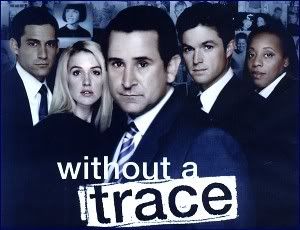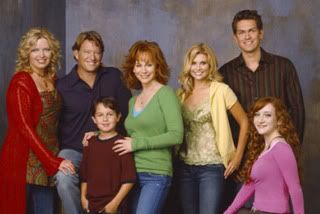For example, (type A) a working class show would be considered Reba, According to Jim, Two and a Half Men or Still Standing. Most of the working class shows portrayed the main male characters as "buffoons," being stupid and mostly for comic relief. And although the men were portrayed this way, they still were presented as above their wives in the grand scheme of things.
An upper class show (type B) would be considered something like any of the CSI shows, Law & Order (Special Victims Unit and Criminal Intent), or Without a Trace. In almost every one of these shows listed, the main male characters do not show much interaction with their wife/family (if they have one), but the male characters do still seem to have more power than the female characters in the show.
After thinking about it, I thought it was quite interesting to compare the different relationships that the men had with their significant others in either types of the shows. Obviously type A is focused more so on comedy, as opposed to type B which is focused more towards drama and thrill with a little bit of comedic relief here and there. Recognizing this point, I could SORT OF see how the men would be presented MORE as buffoons in type A than type B, but I still do also believe that it does have an unconcious meaning behind it about keeping up with the status quo and distinguishing the two classes -- putting working/middle class down.
I also think it is interesting to compare the relationships and interaction with their wife/family/significant other during the time frame of the show on both types of shows.
For example, on Reba, there is always some type of interaction with Reba's family no matter what the episode is about. Sometimes more than others, but there is never an episode that does not involve more than two members of her family in the direct plot. Most of the time this interaction is a positive one. Or, if it is negative, it is resolved by the end of the show.
In Without a Trace, we do see Jack Malone interact with his family in a few of the shows, particularly at the end of last season (I think?). We see his family eventually falling apart with he and his wife being separated, etc. Also, in Law & Order: SVU, there is interaction shown between Elliot and his wife and kids quite a bit. Starting off positive, the relationship eventually goes downhill. Elliot and his wife become separated and his relationship with his children suffers because of his stressful and constant job with the special victims unit. In both of these type B shows the negative interaction between the main characters and their families is not resolved by the end of the show (in contrast with Reba).
I think I am going to stop rambling now, but if anyone else has any other ideas I would love to hear them. Because I am sure I have not seen EVERY single episode of any of the television series that I just listed...
Except for maybe Law & Order: SVU because I definitely have an obsession there. =]
<3
Oh & here are a few pictures of the shows just in case you aren't totally familiar...






